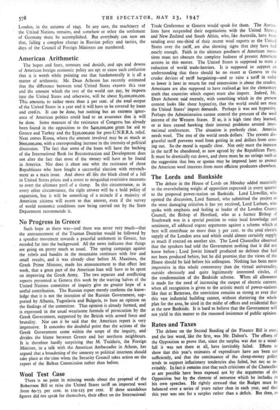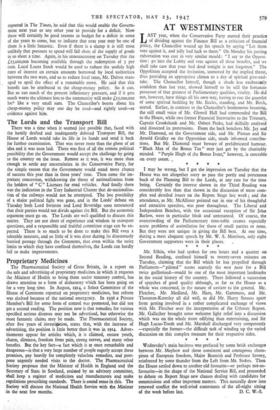Rates and Taxes
The debate on the Second Reading of the Finance Bill is over, and the last word, like the first, was Mr. Dalton's. The efforts of the Opposition to prove that, since the surplus was due to a wind- fall it was not there at all, have inevitably failed. Efforts to show that this year's estimates of expenditure have not been cut sufficiently, and that the continuance of the cheap-money policy tends to support inflationary tendencies also failed, but not so in- evitably. In fact it remains true that such criticisms of the Chancellor as are possible have been exposed not by the arguments of the Opposition but by the element of nonsense which he includes in his own speeches. He rightly stressed that the Budget must be balanced over a series of years rather than in each year, and that this year was one for a surplus rather than a deficit. But then, as reported in The Times, he said that this would enable the Govern- ment next year or any other year to provide for a deficit. Now there will certainly be good reasons to budget for a deficit in some of the years to come, but to indicate that next year may be one of them is a little fantastic. Even if there is a slump it is still most unlikely that pressure to spend will fall short of the supply of goods in short a time. Again, in his announcement on Tuesday that the L15,000,000 becoming available through the redemption of 3 per cent. Local Loans Stock would be used to reduce the unduly high rates of interest on certain amounts borrowed by local authorities between the two wars, and so to reduce local rates, Mr. Dalton man- aged to spoil the effect of a reasonable move. He said that this benefit can be attributed to the cheap-money policy. So it can. But so can much of the present inflationary pressure, and if it gets much worse the ultimate loss to the community will make £15,000,000 loalr like a very small sum. The Chancellor's boasts about his cheap-money policy may one day be used—and rightly used—as evidence against hint



































 Previous page
Previous page